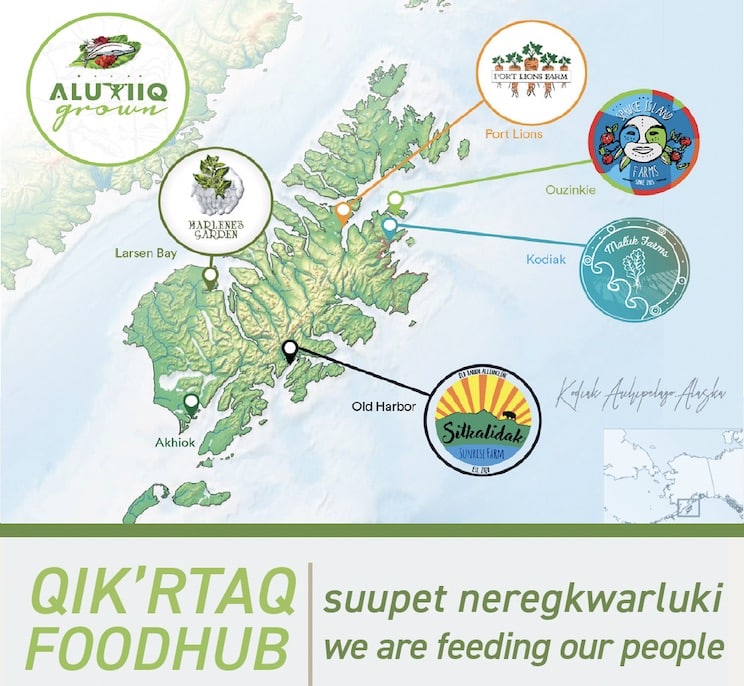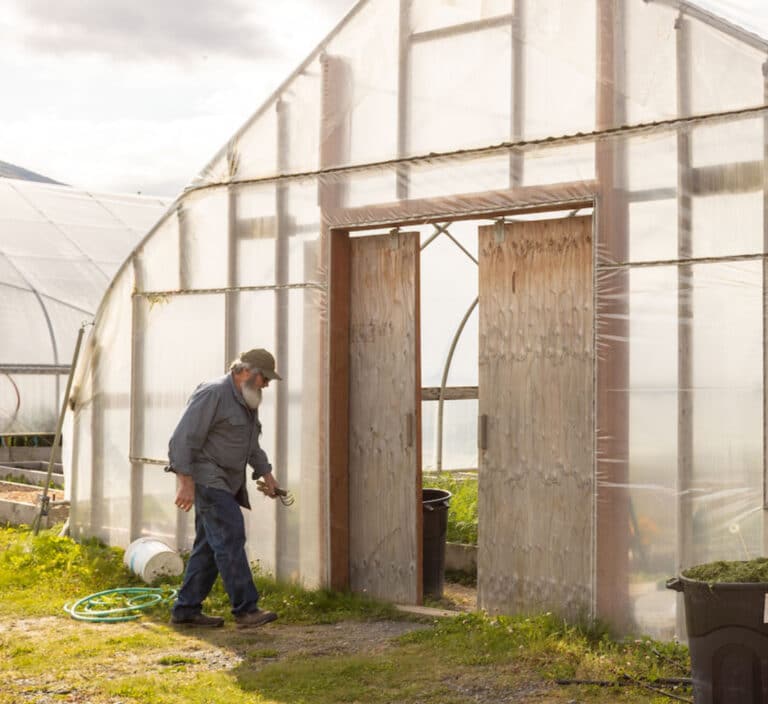Building Hydroponic Growing & Seed-Saving Knowledge for Alaskans
Guest blog by Robbie Townsend Vennel
Alutiiq Grown is the first Alaska Native and rural farming collective in the state of Alaska. Supported through the Kodiak Archipelago Leadership Institute (KALI), the off-road system communities of Port Lions, Ouzinkie, Old Harbor, Larsen Bay and two tribes in the small city of Kodiak have worked to establish soil and hydroponic farms to feed their Elders and communities.
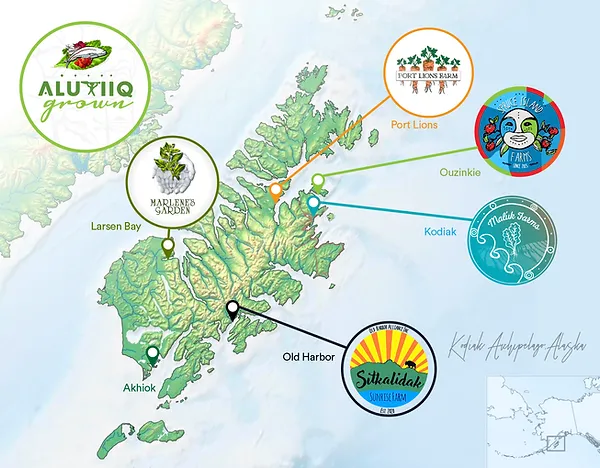
This is no easy task for these isolated communities of Alutiiq descent where the cost of shipping equipment and supplies approaches 200% of similar costs in the lower 48. Since 2016, KALI has worked to identify ways to support Alutiiq Grown farmers in deepening farming skills through technical training and assistance. As farmers have become more confident; they now identify what works best for them resulting in a comprehensive year-round technical assistance program that includes technical site visits, training intensives, webinars, and round robins where farmers share successes and assist each other with challenges.
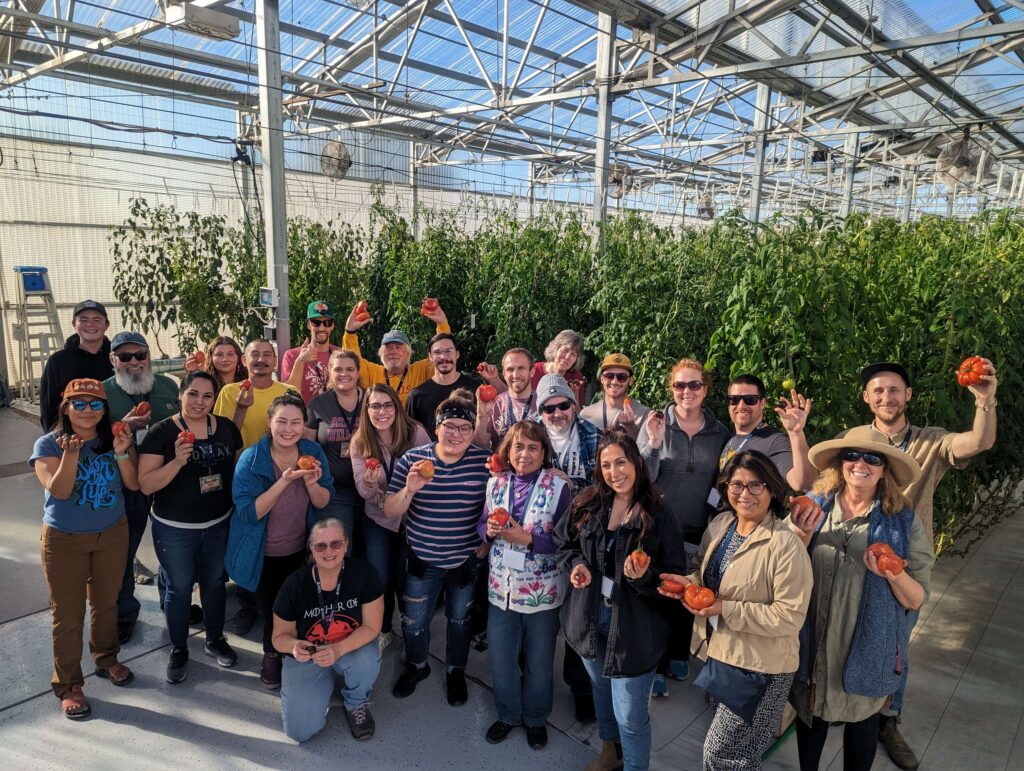
One major farmer-driven training was the 2024 Tucson Winter Intensive. This event was funded through a partnership between the Alaska Food Policy Council (AFPC) and the USDA Islands and Remote Regions Regional Business Center project. Alutiiq Grown farmers requested more advanced hydroponic vine-crop training as they expanded their production into hydroponics suitable for isolated communities with high energy costs. They also asked KALI to help support establishing a regional seed grow-out and saving program to ensure the development of regionally adapted seed that could be saved and shared between the farms. Alutiiq Grown farmers were not able to purchase needed seed during the pandemic, driving home the point that true food security requires local access to regionally adapted seed.
Working with the Alaska Food Policy Council, KALI developed a week-long training opportunity in Tucson, Arizona. Why Tucson? Because of the richness of hydroponic training facilities offered through the University of Arizona’s Biosphere 2 (Bio2) and its Controlled Environment Agriculture Center (CEAC). An added bonus was Native Seed SEARCH (NS/S), a grow-out and seed-saving organization also based in Tucson, NS/S has been saving valuable indigenous heirloom seeds, growing them out, and distributing them back to Native American communities for 40 years. This partnership with AFPC allowed KALI to support multiple farmer training requests in one, efficient week!
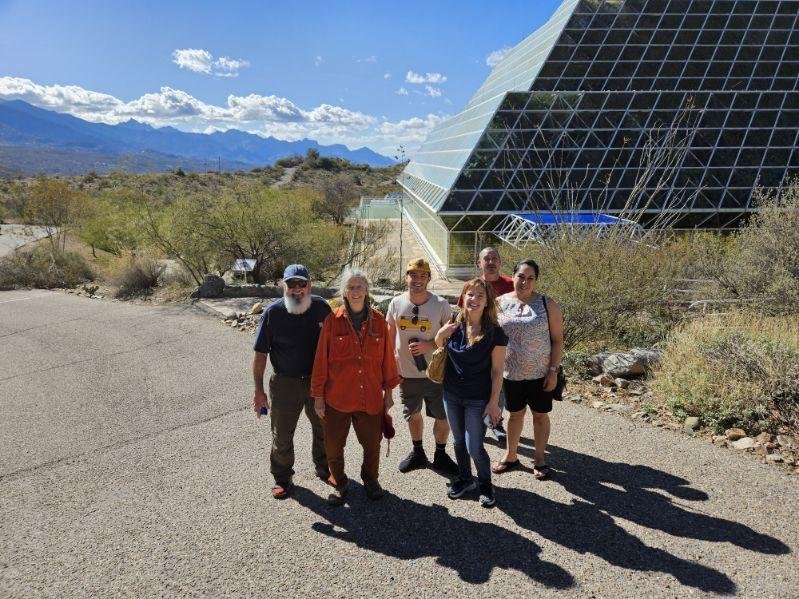
Nine Alaska Native farmers participated in three separate experiences over the course of the week. The first day was spent at Bio2, one of the largest controlled environments in the world, and was facilitated by Dr. Linda Leigh, one of the original Biospherians. As Linda shared her experiences of living and caring for the closed system that was your sole life support, the team was led to reflect on the importance of understanding systems thinking and how to utilize the space, heat, electricity, and nutrients processed from one system to benefit another. Farmers were “blown away by everything they learned”. As one farmer put it, “It is possible to subsist on our own food production…and that in a controlled space you can grow anything!” These are important lessons to bring back to isolated communities at the end of the food chain.

For the next three days, the team participated in UA’s Vine Crop Hydroponic Training intensive with Dr. Tristan Hooks. Mornings were spent in the classroom on advanced growing in controlled environment topics and afternoons were spent with hands-on instruction in the CEAC greenhouses. Farmers who completed this training together with their 3 years of hydroponic growing experience are now capable of providing technical assistance to other isolated Alaska communities! We have now successfully grown our own Alaska Native technical assistance! As one farmer shared, “Being able to attend this training in person has given me the opportunity to do my job as a grower better. I learn best hands-on, so I was grateful for this opportunity.”

Then the final day saw the team at NS/S for a tour of the conservation farm, the seed bank, and lab followed by an NS/S-led exploration of how Alutiiq Grown could adapt NS/S practices to establish their own regional seed bank. This was a thoughtful time for the team, as they considered the challenges they faced adapting and growing out seed in Kodiak’s wet and cold environment. Following the approach, NS/S demonstrated that seed saving would mean more resilient seed stock for Alaska. Team comments included thoughts such as “any region worried about losing valuable plant species and /or food security should and could follow their example for a regional seed bank”. The team was impressed with NS/S’s thoughtful approach to their work as expressed by this Port Lions farmer, “I was intrigued listening to their job roles as it all plays a big part in their dedication to seed saving, going back many years.”
Now that the team is back home in the Kodiak Archipelago, the week in Tucson continues to resonate and inform Alutiiq Grown’s work as they consider how they can use the tools and training given to show other growers and community members what they have learned. Planning has already begun with NS/S working together to develop a regional seed bank and with the Chugach Regional Resources Commission to provide critical technical assistance to start-up hydroponic farming in their seven Alaska Native communities. With AFPC’s assistance, what Alutiiq Grown learned in Tucson serves as a foundation for other remote Alaskan communities to reach for their own food sovereignty.

Front row left to right: Max Lyons, Chantelle Harrison, Dr. Alexandra Zamecnik, Nina Gronn, Kailey Shugak, Colin Peacock, Martha BurgessPhoto shared with permission from Native Seeds/SEARCH

